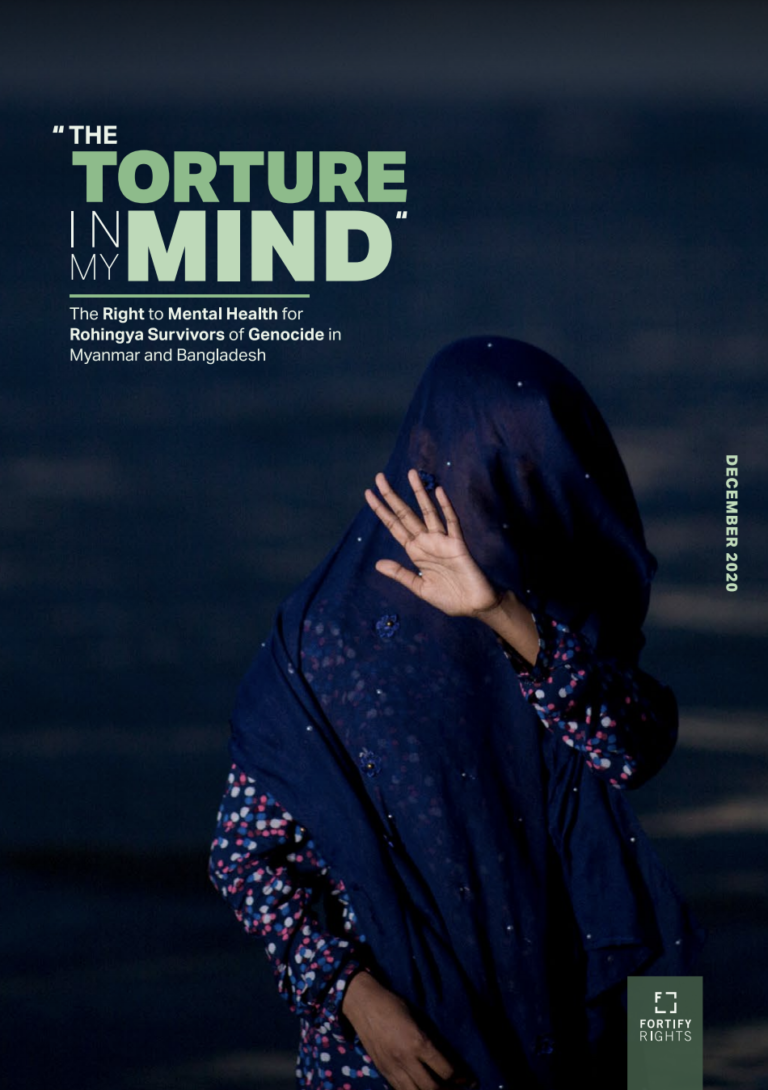United Nations agencies estimate that 12 months after an emergency, approximately 15 to 20 percent of adults will experience some type of moderate or mild mental health disorder. However, data published today reveals that 88.7 percent of Rohingya refugees experienced symptoms of depression, 84 percent experienced symptoms of emotional distress, and 61.2 percent experienced symptoms of Post-Traumatic Stress Disorder. The data further shows how these symptoms adversely impact the daily lives and functioning of Rohingya genocide survivors.
The 99-page report, “The Torture in My Mind”: The Right to Mental Health for Rohingya Survivors of Genocide in Myanmar and Bangladesh, is based on participatory action research conducted between March 2018 to November 2020 by a team of ten ethnic-Rohingya researchers trained and supported by Fortify Rights. The report provides new evidence of the severe mental health toll that genocide, human rights violations, and violence has on survivors.
The quantitative methods used in the report ensure the results are representative of the entire Rohingya refugee population in Bangladesh.

